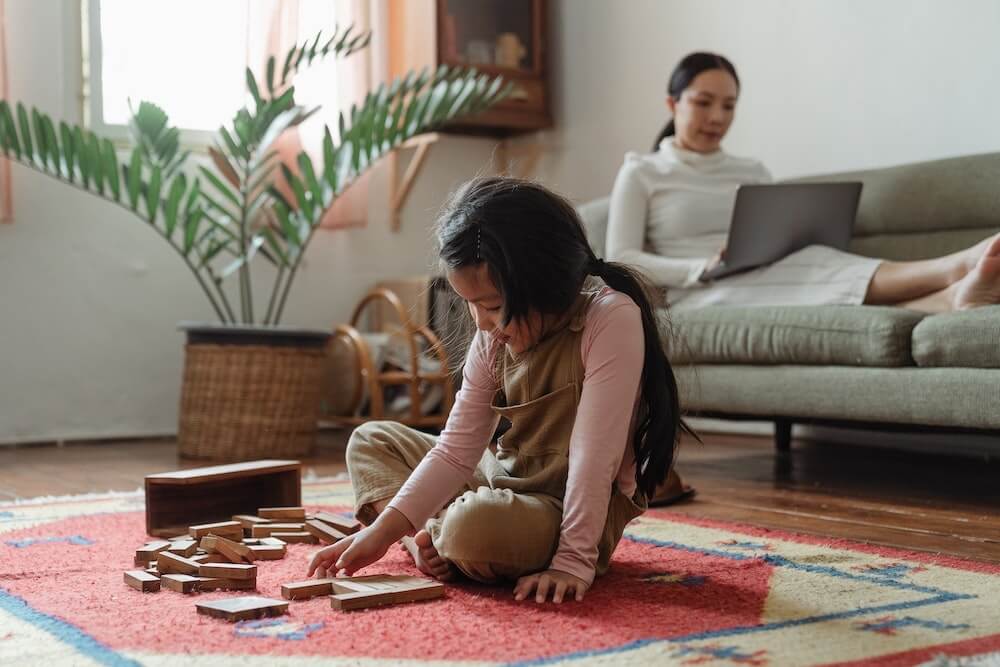While parents today don’t face the same worries that parents a century (or even half a century ago) faced, new issues such as cyber safety, cyberbullying, or climate change ensure that parenting in the 21st century is no walk in the park.
Although parents have the best intentions of protecting and shielding their children from harm, malice, or cruelty, it’s possible that this natural impulse can easily cross a boundary into becoming overprotective.
While all parents want to keep their children safe, overprotective parents can actually negatively impact or impede their child’s development and growth.
Terms such as ‘strawberry generation’ have also emerged in recent years. This refers to children who have been so overprotected that they act entitled and are unable to think critically or take care of themselves – consequences that could have severe consequences for adolescence and adulthood.
Here are some tips to help you strike a balance between protecting your child and giving them enough space to learn, grow, and mature:
1. Differentiate between risk and danger
For many parents, the innate urge to keep your child safe can make you overprotective without even realising it. However, it’s important to recognise the difference between risk and danger. For example, allowing your child to use knives with no prior instruction is dangerous, whereas allowing them to help you during dinner prep with supervision is risky but safe.
Taking measured risks is part and parcel of daily life, and giving children the opportunity to estimate risk is important in helping develop their critical thinking skills. This does not mean giving your child free reign to do as they wish – instead, parents should introduce new experiences, provide basic guidance and safety rules, and then step back where possible. This lets your child have space to weigh out different factors and realise their own boundaries, which builds self-confidence and trust in themselves.
2. Give your child responsibilities at home
It’s important to remember that your child will one day grow up into an adult with their own household and obligations. Overprotective parents who avoid giving their child any responsibilities at all can result in them lacking the basic life skills needed for adulthood.
Giving your child chores is a great way to instill a sense of responsibility and independence in them. These tasks can always be adjusted based on their age or how busy they are with school, but what’s important is that they help your child understand how their efforts contribute to the lives of those around them. In this way, you can raise independent yet compassionate children who can confidently live on their own when the time comes.
3. Relax and stop worrying about the future
Above all, parents should regularly remind themselves not to obsess too deeply over their children’s future. It’s true that new concerns will emerge as your child grows up, but overthinking about problems that don’t exist yet can cause you to become overprotective. Worse, you might end up projecting these worries onto your children and affecting their own sense of self.
Ensure your Child’s Well-Rounded Growth and Development with MindChamps
Ultimately, parenting isn’t a job that parents do on their own. Family members, close friends, schools, teachers, educators, and the larger community all play a role in helping your child’s growth and development along. Choosing the right schools, after school care services, and enrichment classes that align with your parenting philosophy is key to surrounding your child with the right environment and encouragement to blossom into mature and thoughtful young adults.
MindSpace by MindChamps offers after school care programmes that aim to help your child develop our proprietary Champion Mindset through the 3-Minds Approach. This approach comprises the Champion Mind, Learning Mind, and Creative Mind which are all geared towards helping your child unlock their full potential and developing into mature, independent thinkers.
Get in touch to find out more about our after school care programmes and curriculum, or book a visit to a MindSpace after school care centre near you.
